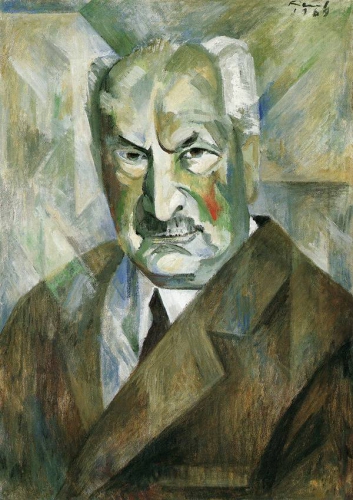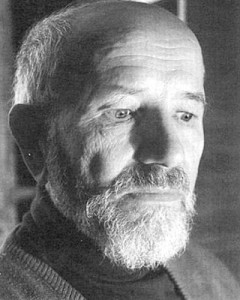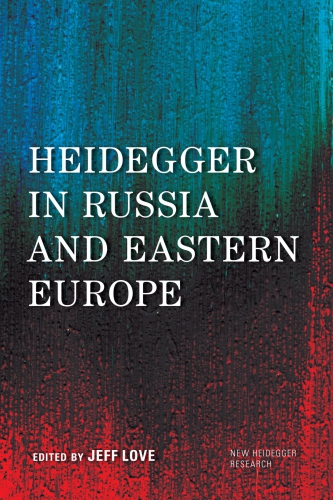mardi, 22 août 2017
Heidegger Against the West

Heidegger Against the West
by Jeff Love
Ex: http://www.rowmaninternational.com
Martin Heidegger's thought has had a truly global impact. Yet, while his influence on European philosophers is well documented, we cannot say the same regarding other parts of the world, like China, Iran, and Japan. Heidegger's influence in the countries of the former Soviet bloc is an especially rich case, in part because of the powerful brand of resistance to western thought that has taken root most noticeably in Russia. Indeed, these radical strains of resistance to the west have become more important than ever now that at least one advisor of a sitting president of the United States has openly cited Russian extremists in what seems to be a subversive gesture of solidarity. Heidegger has perhaps never been more directly influential in politics - world politics - than he is now, despite the various scandals that attend his thought in the west.
Before returning to this point, let me give a brief sketch of the history of Heidegger reception in Russia and Eastern Europe.
The crucial factor here is of course political. In the earliest years of Heidegger's fame, the 1920s and 1930s, the Soviet Union was actively engaged in the creation of the world's first socialist state whose primary philosophical allegiance was to dialectical materialism or 'diamat.' After the relative openness of the 1920s, the restrictive ideological controls imposed in the 1930s ensured that almost any other form of philosophy was censured as bourgeois, reactionary or counter-revolutionary. Heidegger's open support for the National Socialist party in 1933 did nothing to improve matters. Phenomenology made greater inroads into Eastern Europe during the interwar period, perhaps most notably in Czechoslovakia, but the consolidation of Soviet power throughout Eastern Europe after the German defeat in 1945 meant that Heidegger's thought could not be openly studied there either prior to the momentous changes of 1989. As all witnesses concur, it was neither easy nor safe to study Heidegger in the post-war period, neither in the Soviet Union, nor in the countries of the Eastern block.
With the collapse of the Soviet Union, formalised by the official dissolution of the latter in December of 1991, the situation changed radically. But this radical change had been prepared for some years in advance. Heidegger's thought became already in the 1960s a furtive source of resistance, primarily to the rigid dogmas of dialectical materialism. But it also became later on a source of inspiration for broader resistance to the hegemony of western modes of thinking itself. If the former applies to Heidegger's reception both in Eastern Europe and the Soviet Union, the latter applies almost exclusively to the post-Soviet situation in Russia where traditional forms of resistance to the west exploited Heidegger's critique of metaphysics for their own purposes. It is well to emphasise this astonishing conjuncture since it features two levels of Heideggerian influence, both of which were and are perceived as emancipatory, although that emancipation itself is far more problematic.
It is far more problematic precisely because emancipation from the strictures of dogmatic Marxism seems more acceptable than emancipation from the west in toto, moreover as emancipation that condemns western culture as tyrannous, banal and numbing 'Americanism.' This distinctively Russian phenomenon will occupy me for the rest of my brief essay.
 Heidegger's thought came to prominence in the post-Soviet era through the work of a remarkable polyglot translator and charismatic philosopher, Vladimir Bibikhin (1938-2004). Not only did Bibikhin translate Being and Time into Russian, he also cultivated a generation of young philosophers through his widely-attended lectures at the University of Moscow. It is difficult to apply a label to Bibikhin's thought, and I shall not try to do so. Suffice it to say that Bibikhin attempted to graft Heidegger onto central currents in Russian thought in such a way as to renovate Russian culture in the post-Soviet era, not as a wholesale rejection of western thought but as an effort at correcting its sometimes baleful influence, especially in regard to the insensate selfishness and venality that made strong inroads into post-Soviet Russia under the guise of promoting a free market and capitalist democracy. Bibikhin fought against the hypocrisy of American democracy as reflected in Russia, the ostensibly principled pursuit of freedom concealing there, as elsewhere, naked greed and exploitation.
Heidegger's thought came to prominence in the post-Soviet era through the work of a remarkable polyglot translator and charismatic philosopher, Vladimir Bibikhin (1938-2004). Not only did Bibikhin translate Being and Time into Russian, he also cultivated a generation of young philosophers through his widely-attended lectures at the University of Moscow. It is difficult to apply a label to Bibikhin's thought, and I shall not try to do so. Suffice it to say that Bibikhin attempted to graft Heidegger onto central currents in Russian thought in such a way as to renovate Russian culture in the post-Soviet era, not as a wholesale rejection of western thought but as an effort at correcting its sometimes baleful influence, especially in regard to the insensate selfishness and venality that made strong inroads into post-Soviet Russia under the guise of promoting a free market and capitalist democracy. Bibikhin fought against the hypocrisy of American democracy as reflected in Russia, the ostensibly principled pursuit of freedom concealing there, as elsewhere, naked greed and exploitation.
Alexander Dugin took a different path. Dugin emerged from the shadows of far-right nationalist movements in the 1990s and seems to have come into his own in the Putin era as an advocate of a harshly anti-liberal, anti-American political stance. His 'fourth political theory' encourages resistance to the hegemony of modern liberalism, epitomized in its decadence by the United States, and develops a concept of multi-polarity whereby different cultural identities might be free to co-exist without having to submit to the hegemony of the United States. If this thinking may seem to reflect platitudes of post-colonialist thought, Dugin's advocacy of 'Eurasianism,' of Russia's destiny as a mediating entity between West and East, often referred to as an ideology of empire, as well as his reliance on thinkers such as Julius Evola and Carl Schmitt, suggest a profoundly conservative orientation not typically associated with post-colonialism.
Heidegger's thought has grown increasingly prominent as a source of inspiration for Dugin. Rather than grafting Heidegger's thought onto central currents of the Russian tradition, Dugin views Heidegger as offering a powerful productive example to Russian thought. For it is Heidegger, according to Dugin, who shows most clearly that western thought is exhausted and at an end such that it can - and indeed must - be totally overcome. The other beginning Heidegger proclaims in the 1930s as an overcoming of the exhaustion and sterility of western thought becomes a rallying cry for Dugin as well: Russian thought may offer a corresponding example by freeing itself of the suffocating hegemony of the west, of Americanism, to create a new multi-polar world. Yet, it should be noted that Russia becomes thereby a new beacon of freedom, a new centre in a multi-polar world. The ostensibly liberating proclamation of multi-polarity thus ends up reflecting little more than the venerable tradition of Russian 'Messianism' whereby it falls to Russia to save the world - in this case to save the world from the west, as the beneficent'star arising in the East' referred to by another unrepentant nationalist, Fyodor Dostoevsky in The Brothers Karamazov over 136 years ago.
Jeff Love
Author of Heidegger in Russia and Eastern Europe

19:00 Publié dans Philosophie | Lien permanent | Commentaires (0) | Tags : philosophie, martin heidegger, russie, vladimir bibikhin, alexandre douguine |  |
|  del.icio.us |
del.icio.us |  |
|  Digg |
Digg | ![]() Facebook
Facebook



Les commentaires sont fermés.